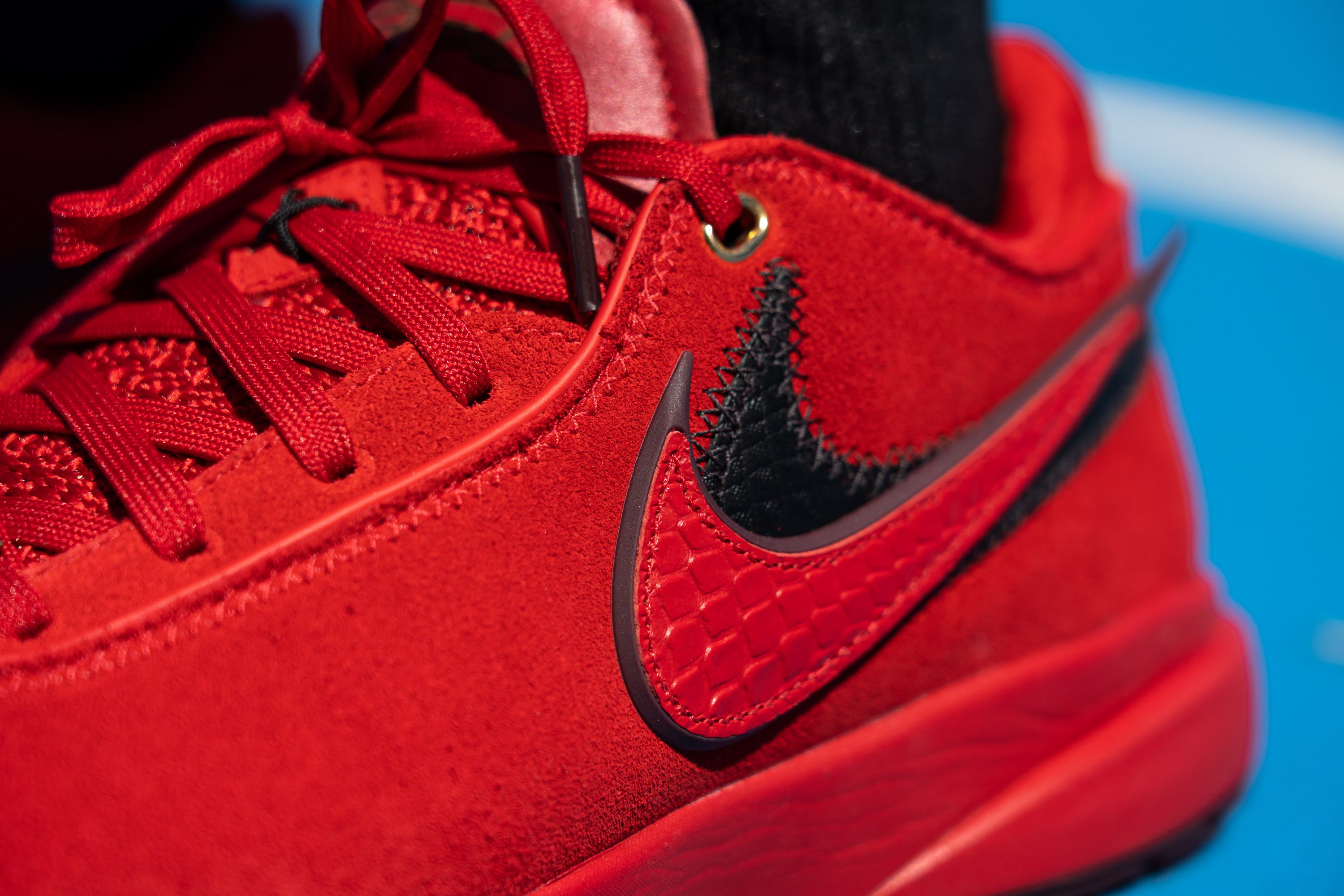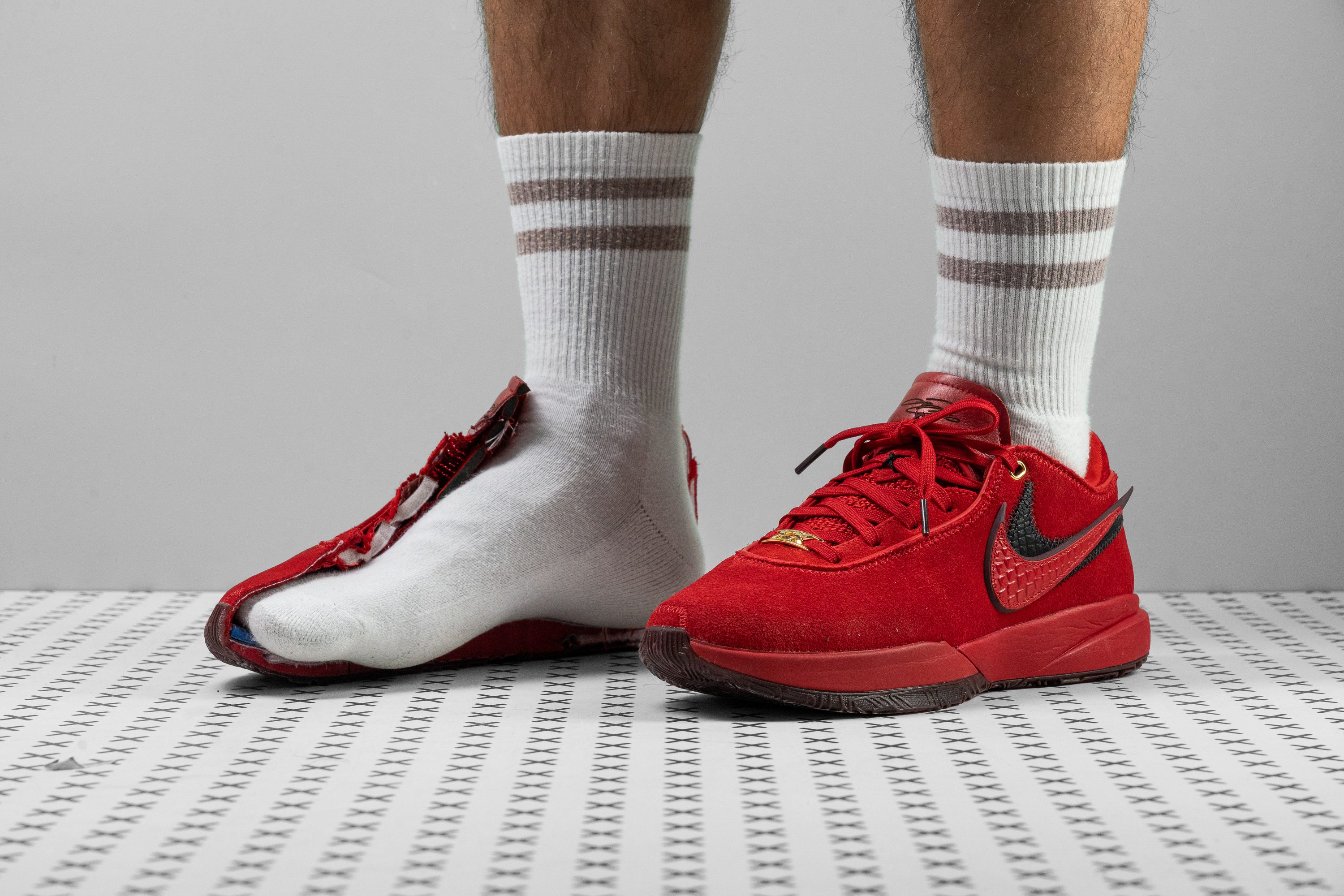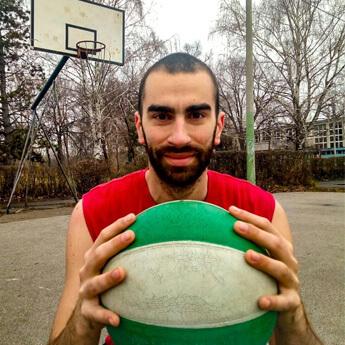Our verdict
- Top pick in best basketball shoes (2023)
Pros
- Amazing overall performance
- Great traction
- Tremendous impact protection
- Pronounced court feel
- Dependable bounciness
- Comfortable upper
- Incredible foot containment
- Stylishly streamlined looks
Cons
- Not for outdoors
- Has to be broken in
Audience verdict
- Top 2% in basketball shoes
- Top 3% in Nike basketball shoes
Comparison
The most similar basketball shoes compared
+ + Add a shoe | |||||
|---|---|---|---|---|---|
| Audience score | 94 Superb! | 89 Great! | 87 Good! | 88 Great! | |
| Price | £190 | £185 | £135 | £160 | |
| Signature | LeBron James | LeBron James | Devin Booker | LeBron James | |
| Top | Low | Low | Low | Low | |
| Ankle support | ✓ | ✓ | ✓ | ✓ | |
| Weight lab | 14.7 oz / 416g | 15.5 oz / 439g | 13.6 oz / 386g | 13.1 oz / 372g | |
| Lightweight | ✗ | ✗ | ✓ | ✓ | |
| Breathability | Moderate | Warm | Warm | Moderate | |
| Outsole durability | - | Good | Decent | - | |
| Drop lab | 4.4 mm | 7.7 mm | 7.0 mm | 4.9 mm | |
| Heel stack lab | 27.0 mm | 31.1 mm | 26.9 mm | 26.9 mm | |
| Forefoot | 22.6 mm | 23.4 mm | 19.9 mm | 22.0 mm | |
| Size | True to size | True to size | Slightly small | True to size | |
| Midsole softness | Balanced | Soft | Balanced | Firm | |
| Stiffness | Stiff | Moderate | Moderate | Flexible | |
| Torsional rigidity | Stiff | Stiff | Stiff | Moderate | |
| Heel counter stiffness | Moderate | Stiff | Stiff | Flexible | |
| Width / fit | Wide | Wide | Medium | Medium | |
| Toebox width | Medium | Medium | Medium | Medium | |
| Midsole width - forefoot | Average | Average | Average | Very narrow | |
| Midsole width - heel | Average | Average | Narrow | Average | |
| Heel padding durability | - | Good | Good | Decent | |
| Toebox durability | Decent | Good | Decent | Decent | |
| Insole thickness | Average | Very thick | Average | Average | |
| Outsole hardness | Average | - | Average | Average | |
| Outsole thickness | Average | Average | Average | Average | |
| Heel tab | None | None | Finger loop | Finger loop | |
| Ranking | #1 Top 2% | #14 Top 27% | #31 Bottom 41% | #26 Top 50% | |
| Popularity | #52 Bottom 40% | #12 Top 23% | #13 Top 25% | #35 Bottom 33% |
Size and fit
Size
Nike Lebron 20 fits true to size (146 votes).
Who should buy the Nike LeBron 20
Aside from LeBron James fans, we established that the 20th Nike LeBron basketball shoe is also great for the following:
- bigger players who want a lot of cushioning
- more agile players who value speed and footwork
- buyers with a generous budget
- wearers who look for a performance shoe that's OK for casual use
- athletes who usually play on indoor courts
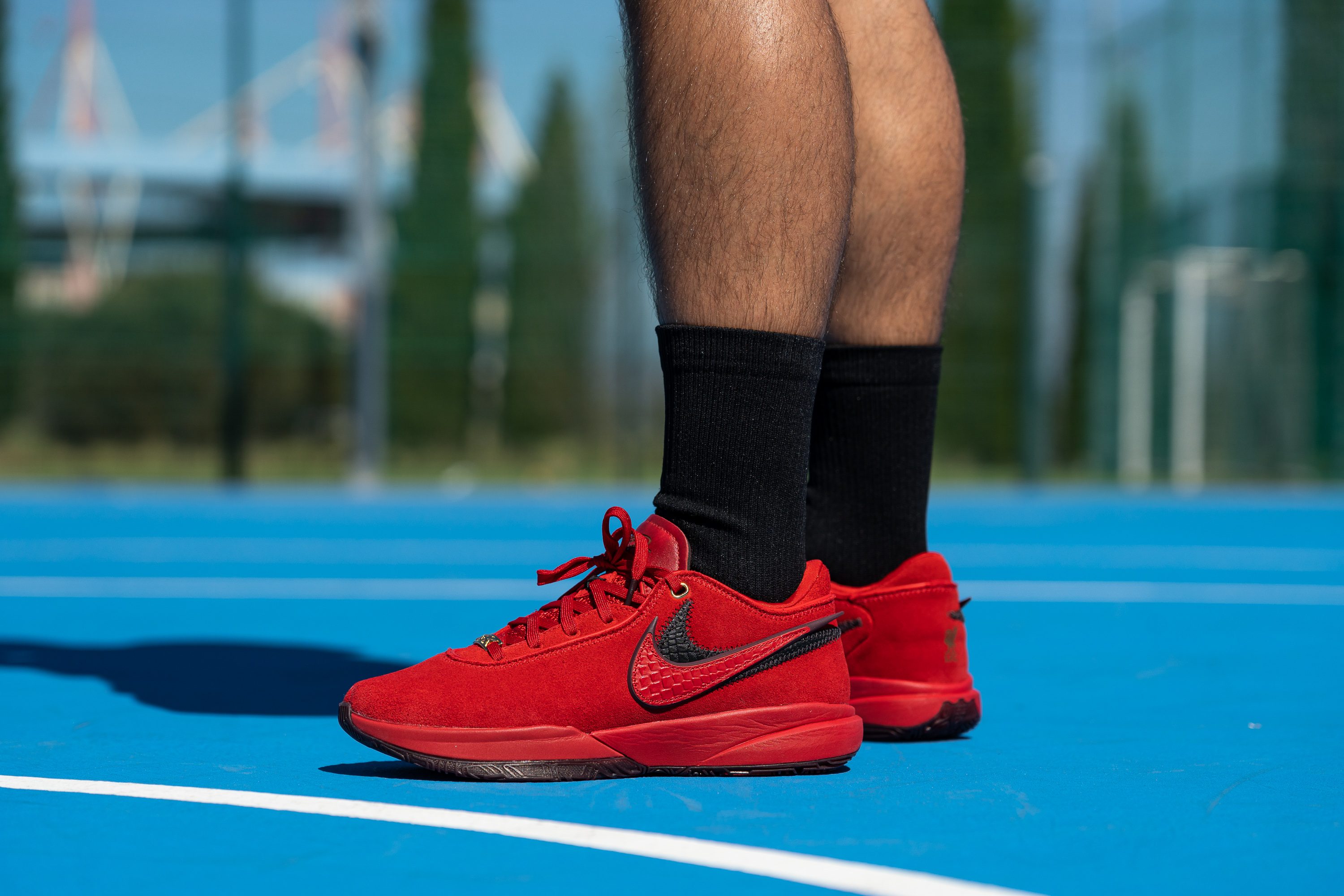
Who should NOT buy this LeBron James signature shoe from Nike
The Nike LeBron 20 is not for players who want a shoe that hits the ground running. This shoe still needs some break-in time. They are better off with the Nike KD 15.
Also, this shoe is also not durable enough for outdoor games. For hoopers who love to play in the open air, we advise you to go for the Nike Cosmic Unity 2.
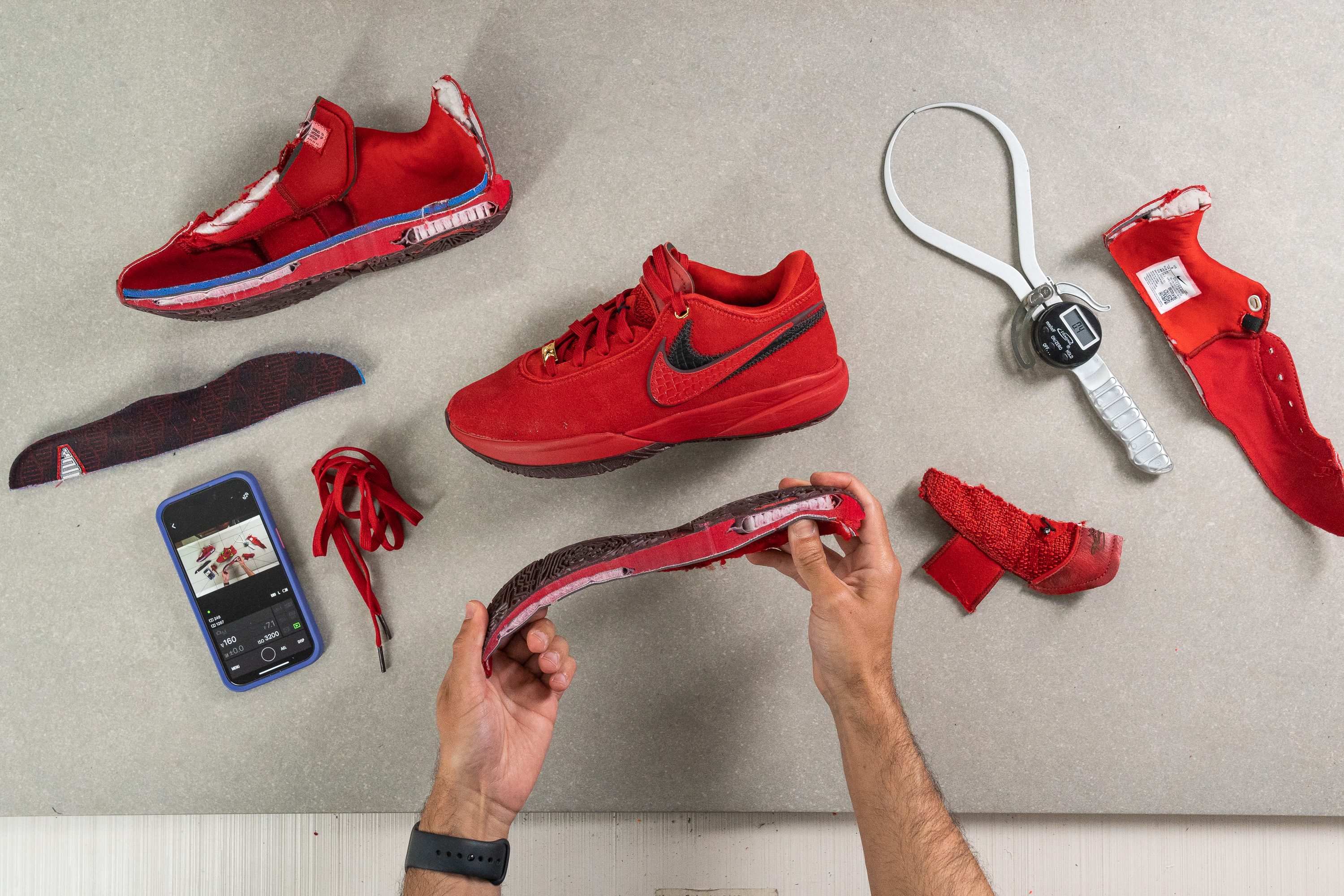
The Nike LeBron 20: An amazing low-top
We are amazed by the shoe's tremendous engineering that allowed it to be played like a mid or a high even though it's actually a true low-top. It is indeed one of the nicest LeBrons to come out.
Breathability depends on the colorway
In most colorways, the LeBron 20 comes with a traditional mesh upper. We don't have any issues regarding this fabric's breathability. However, Nike also released a couple of colorways that feature suede uppers.
If you are prone to sweaty feet, we do not recommend the suede version. It only scored 2 out of 5 on our smoke breathability test (where 1 is the least breathable). Good thing, some air still passes through the tongue area.
As you can see, its solid upper has zero transparency.
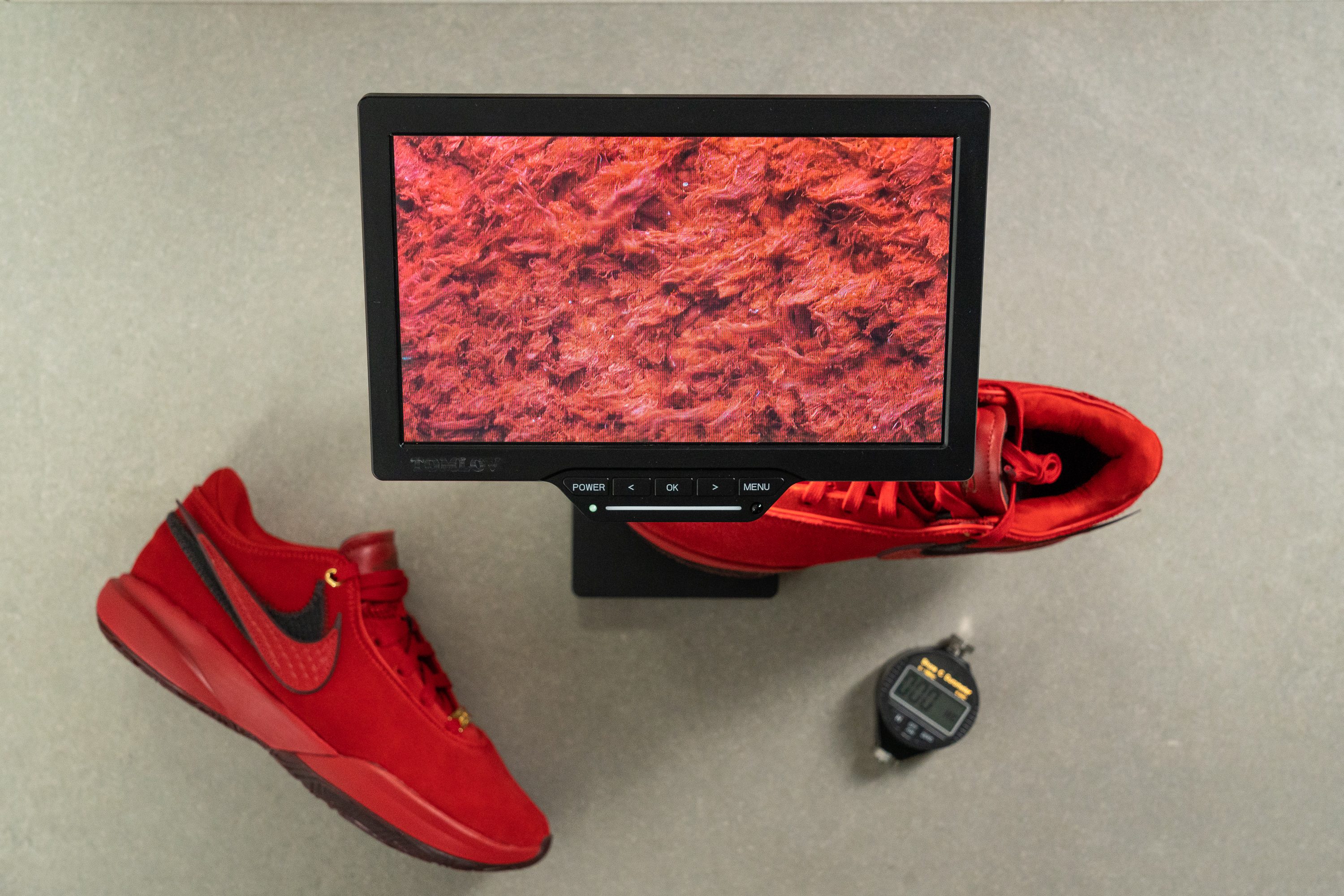
But the upside of such a beefy upper is, of course, its durability.
Having applied a Dremel to the shoe's most sensitive upper part (front of the toebox) for 4 seconds at 10,000 RMPS, we only scratched the surface! Toe drags are a joke for this suede LeBron variation.
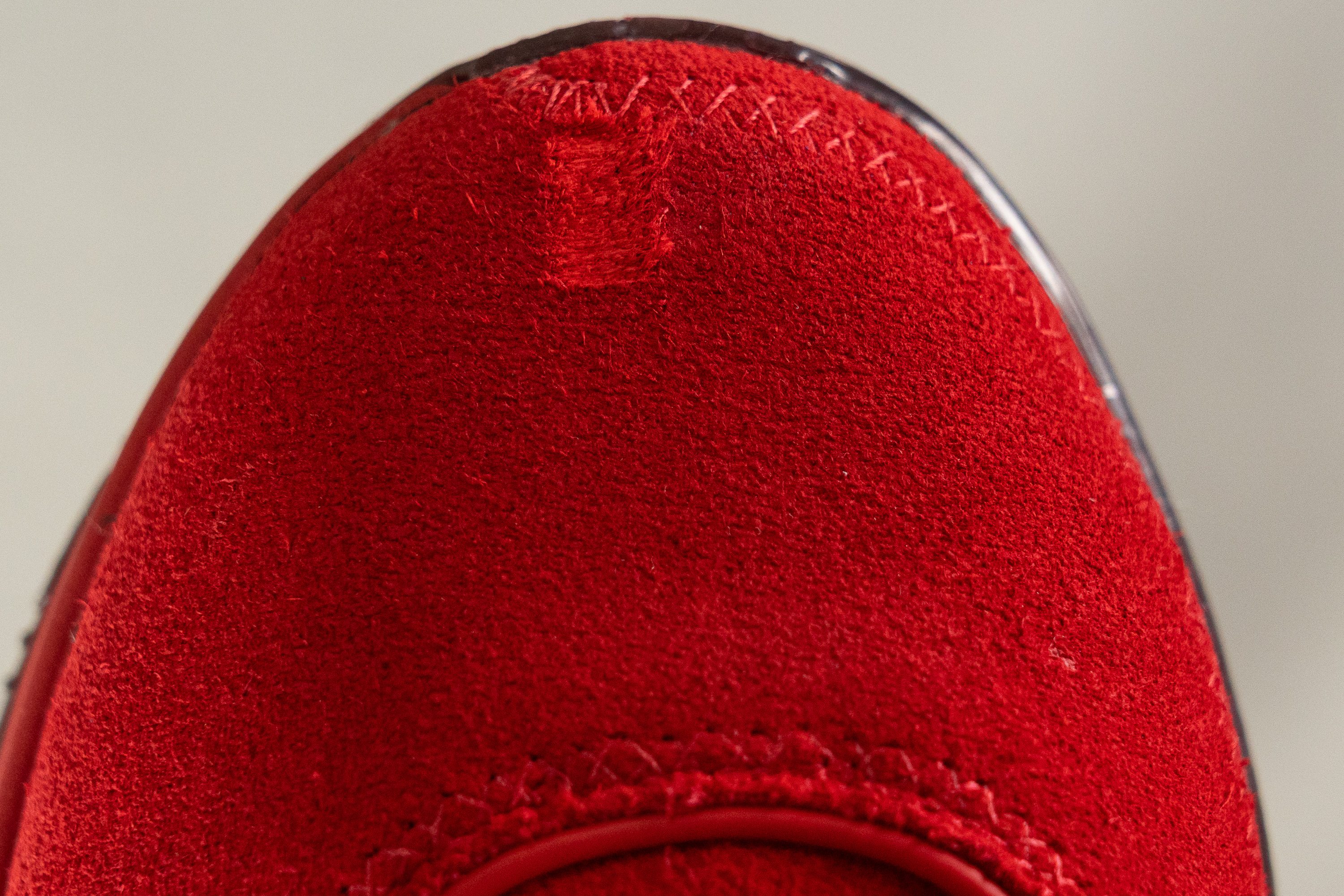
In a typical mesh upper, the same force causes greater damage (most often, a hole).
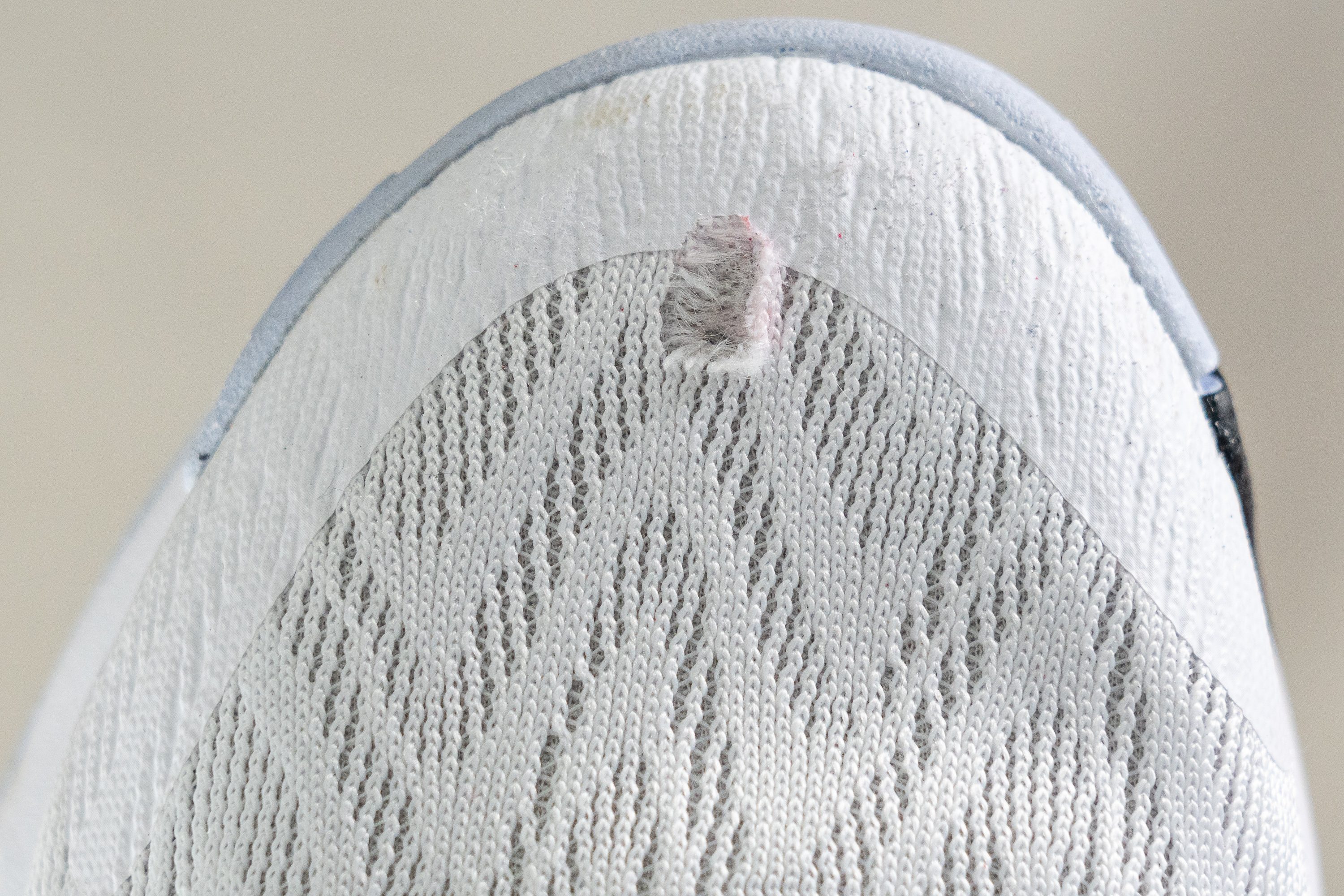
Enjoy a comfortable upper
We feel that the shoe's lining is super padded and very comfortable.
There is some padding in the tongue as well. We measured its thickness at 6.3 mm. But it is not as beefy as in some other basketball shoes (i.e. take the 12.9-mm tongue of the PUMA TRC Blaze Court). The average tongue thickness for basketball shoes is 9.5 mm.
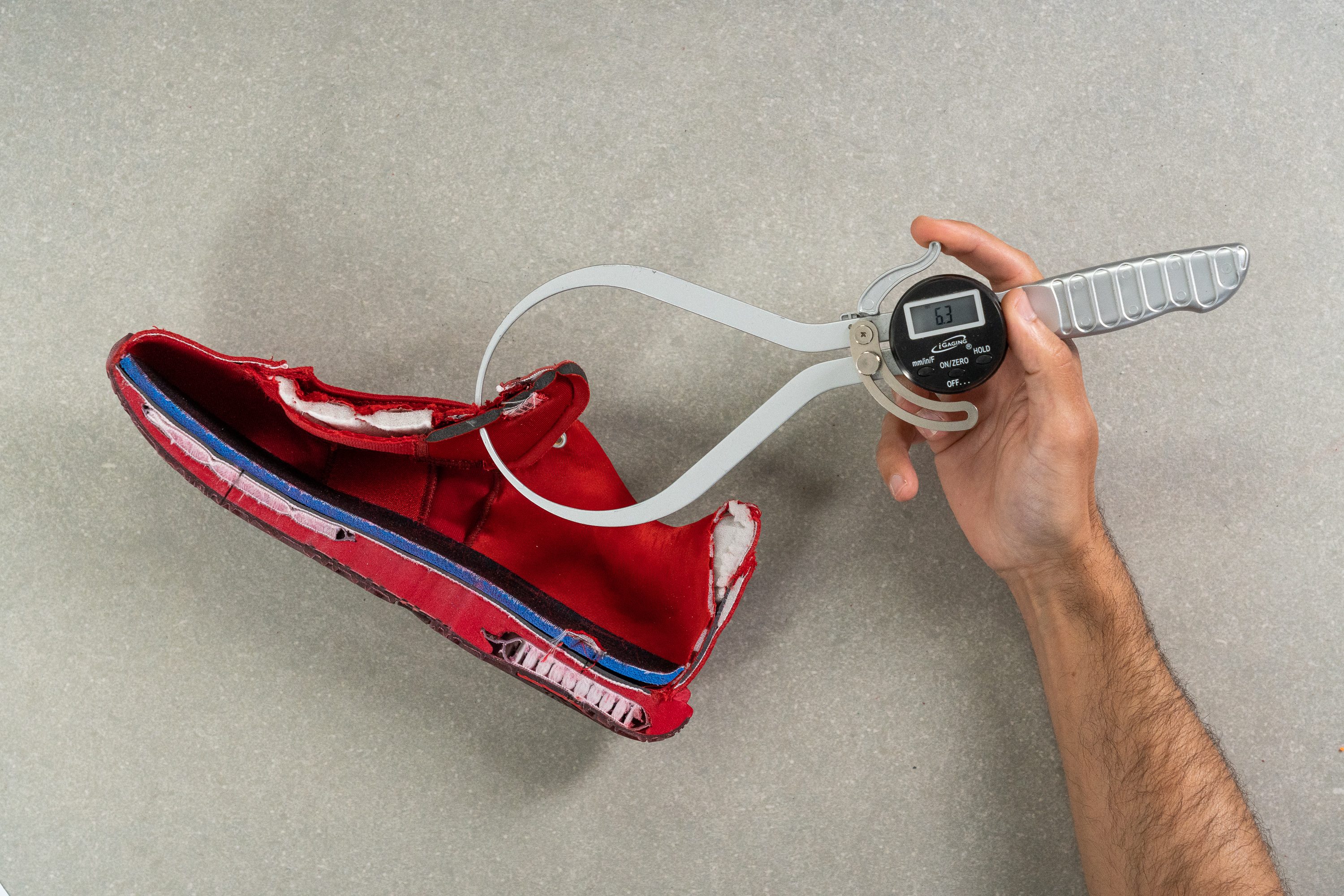
A grip that has everything covered
In terms of traction, we regard LeBron 20 as top-tier because it stuck like glue even on dusty surfaces.
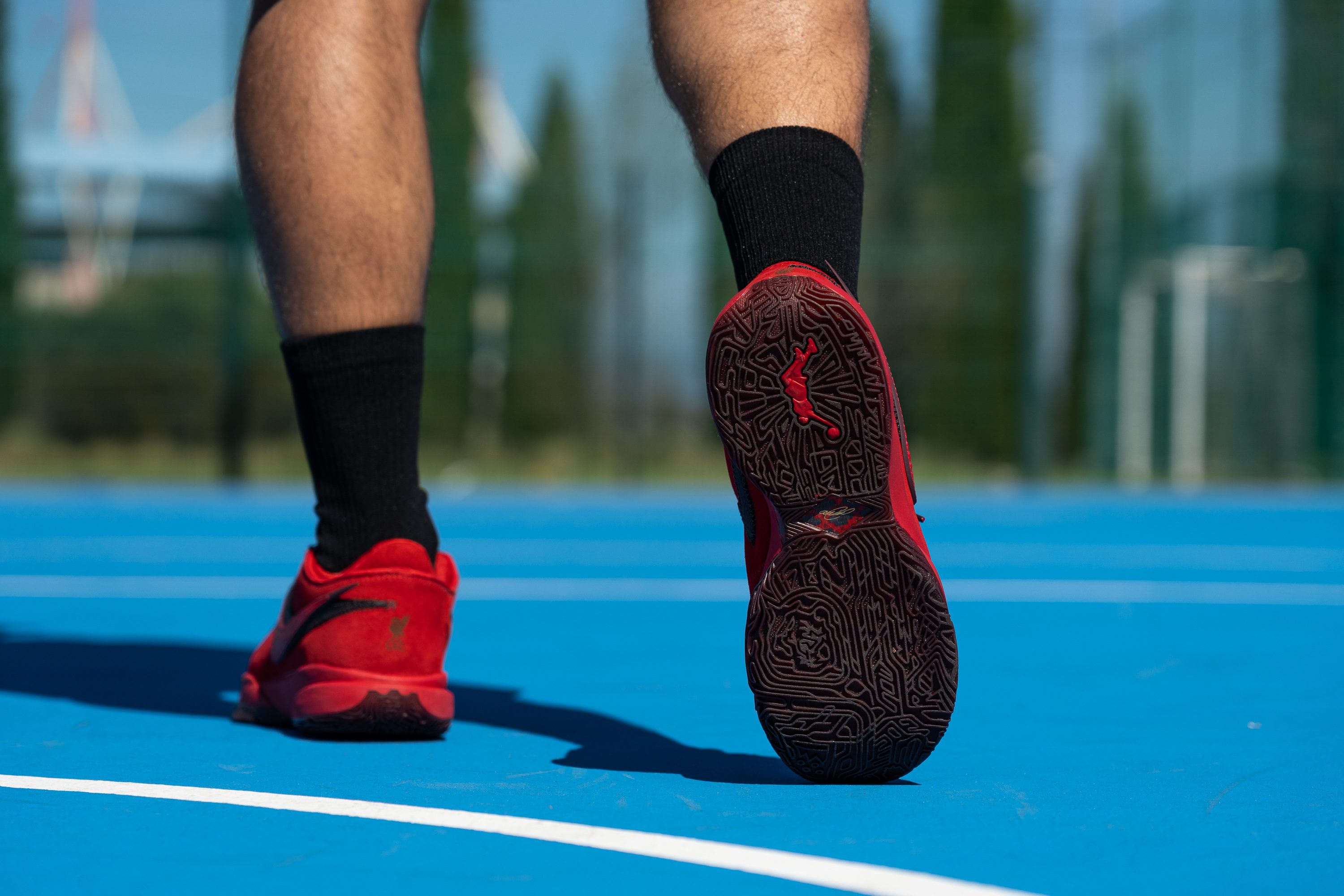
We can attest that the non-uniform pattern on the outsole helps the shoe grab the floor in a lot of different directions.
Due to the shoe's multidirectional bite and really supportive structure, we were able to achieve and maintain high speeds, making the shoe tremendously nimble.
Can be used outdoor
We found LeBron 20 in indoor use awesome but when it comes to outdoor games from time to time, it is also excellent.
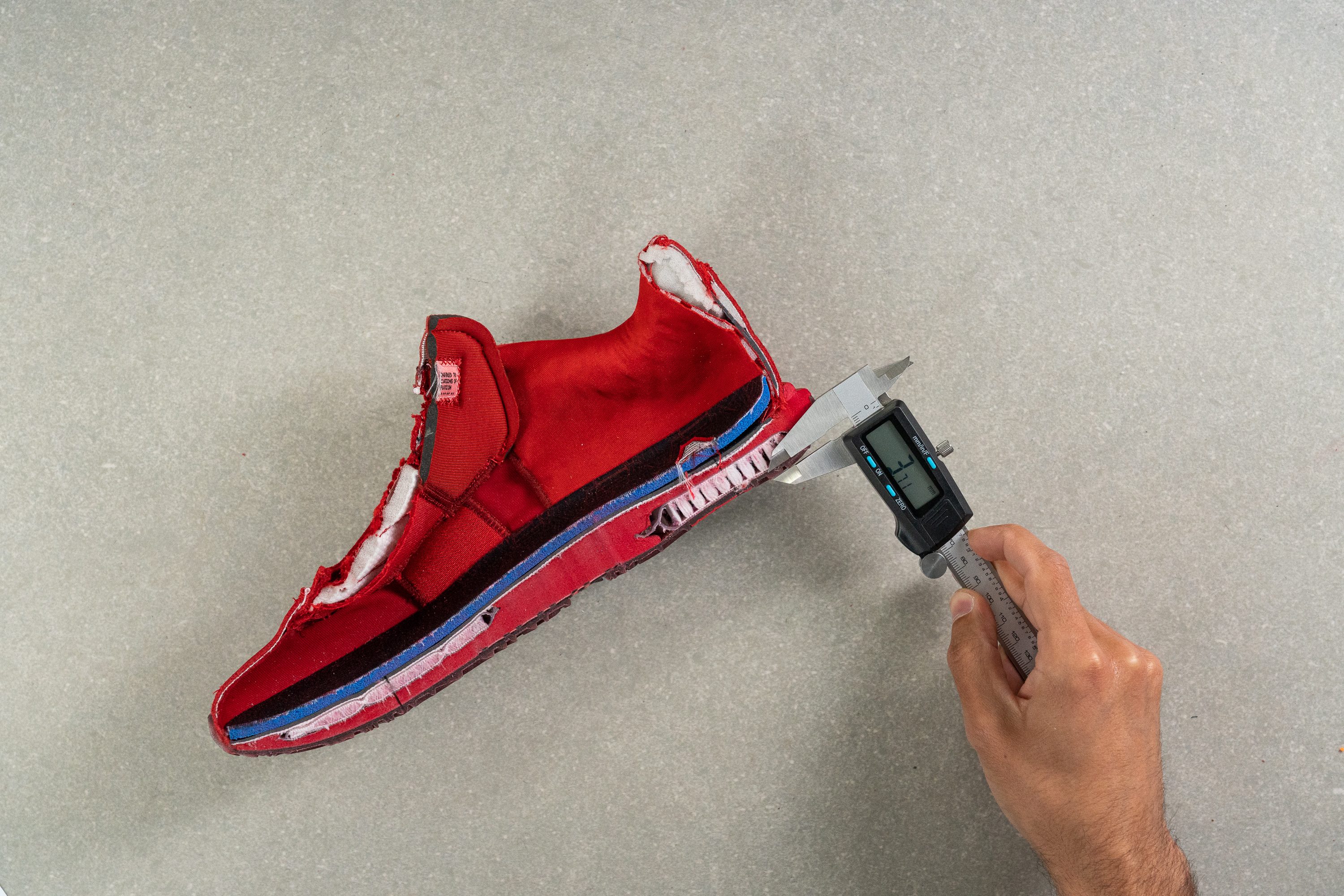
In our durability tests, we actually found that the Nike LeBron 20 could work for occasional outdoor use. The thickness of its rubber outsole (3.7 mm) is right at the average of basketball shoes (3.8 mm).
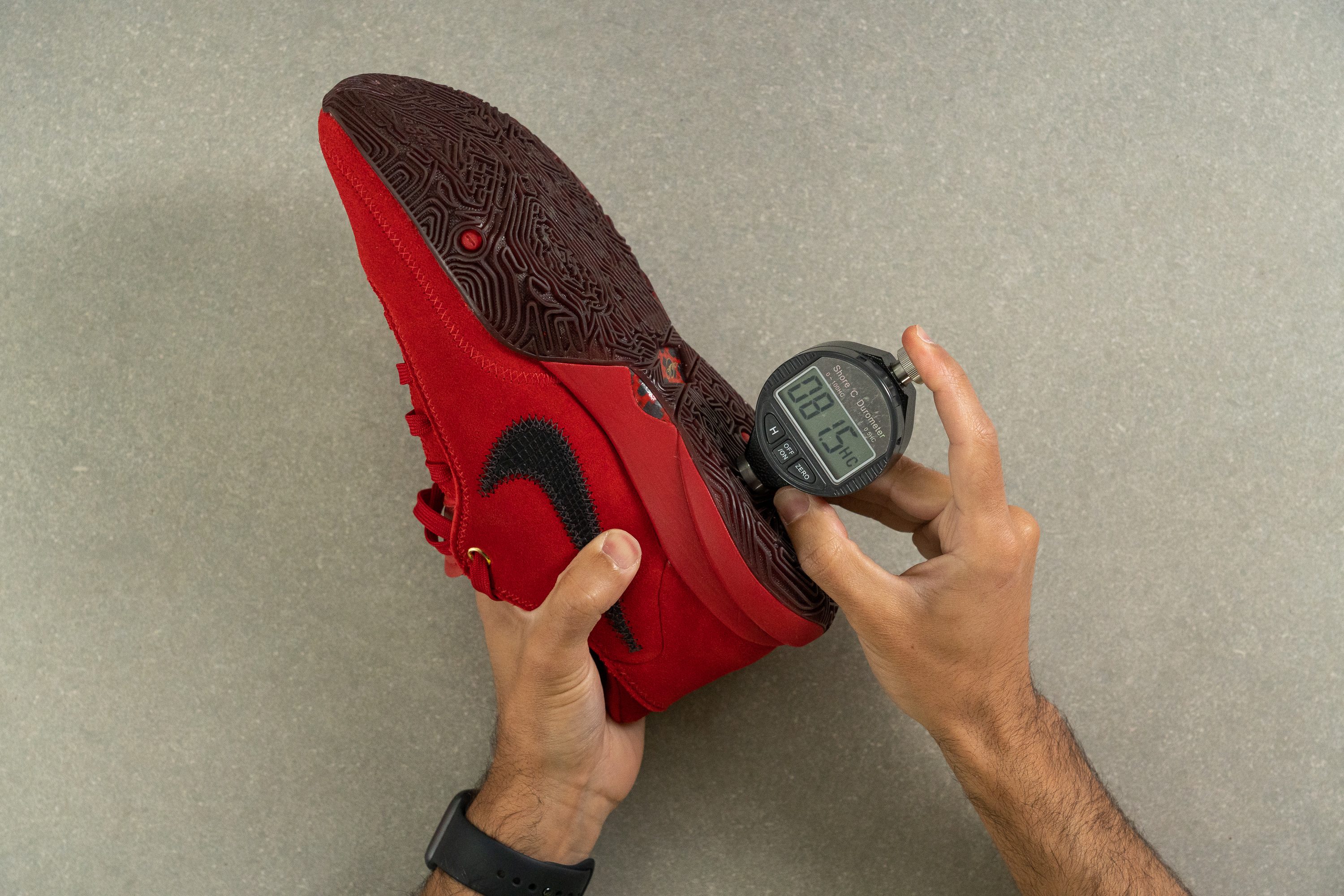
And when measuring the density of this rubber compound with a durometer, we found that the LeBron 20 is 4% firmer than average. Harder rubbers are less prone to fast abrasion compared to softer ones. This is another reason why this Nike shoe may not wear out that fast on an outdoor court.
Enjoy plush cushioning with the Nike LeBron 20
The midsole tooling is definitely soft. We realised that it's soft enough to ensure comfort but firm enough not to flat out quite easily. With this, we concluded that the LeBron 20's cushioning system is really meant for a lot of contours and a lot of comfort.
Our lab tests totally confirm our sentiments. Having measured the shoe's foam in the heel with a durometer, we can state that the Lebron 20 is 7% softer than the average. It is not a marshmallow by any means but it is softer than the Cosmic Unity 2, for instance.
There's a lot of energy return
The midsole tooling is also able to deliver a lot of energy return. Our in-game experiences in its midsole are super bouncy.
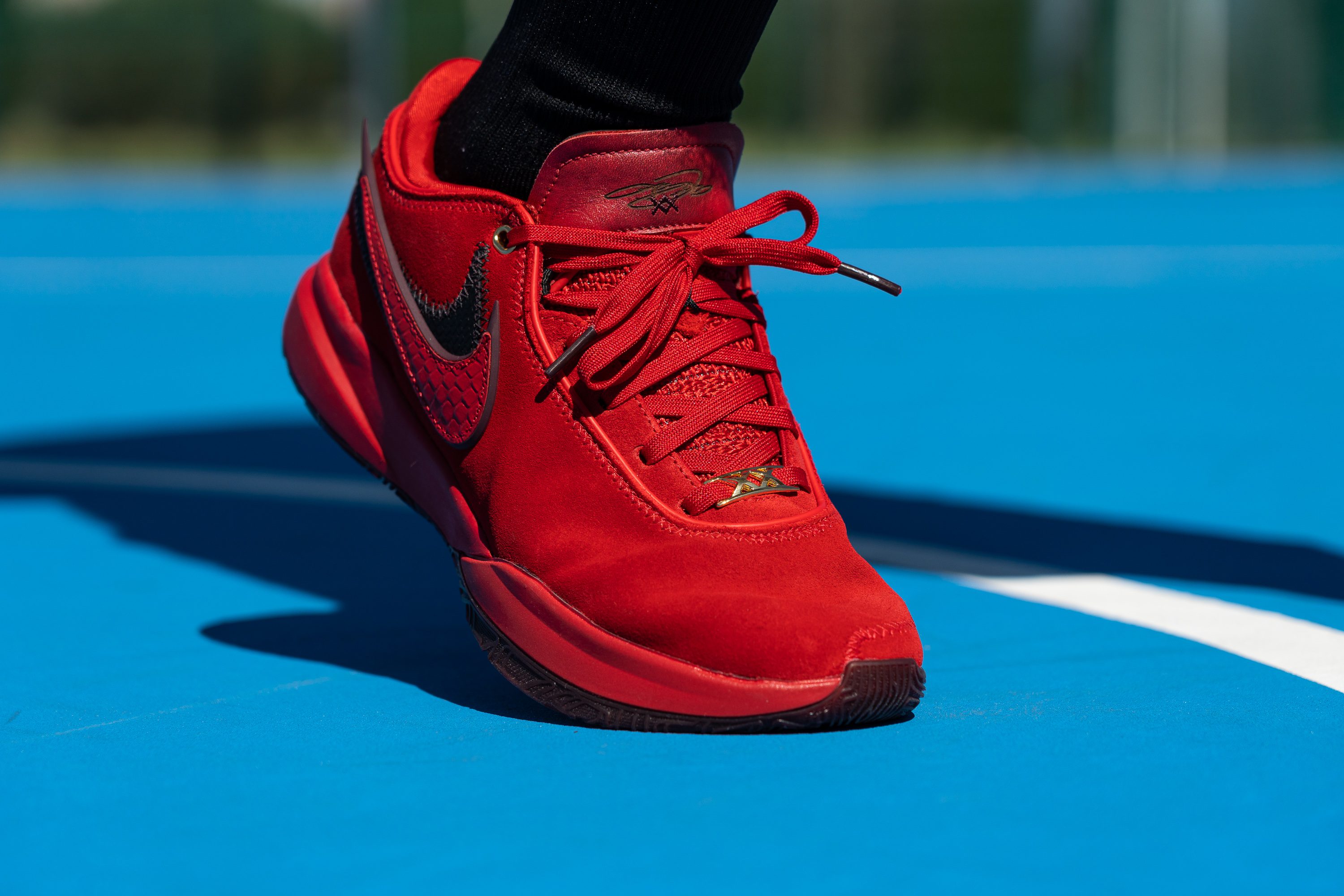
As for the amount of cushioning, it can be said that the Nike LeBron 20 sits right at the average of basketball shoes.
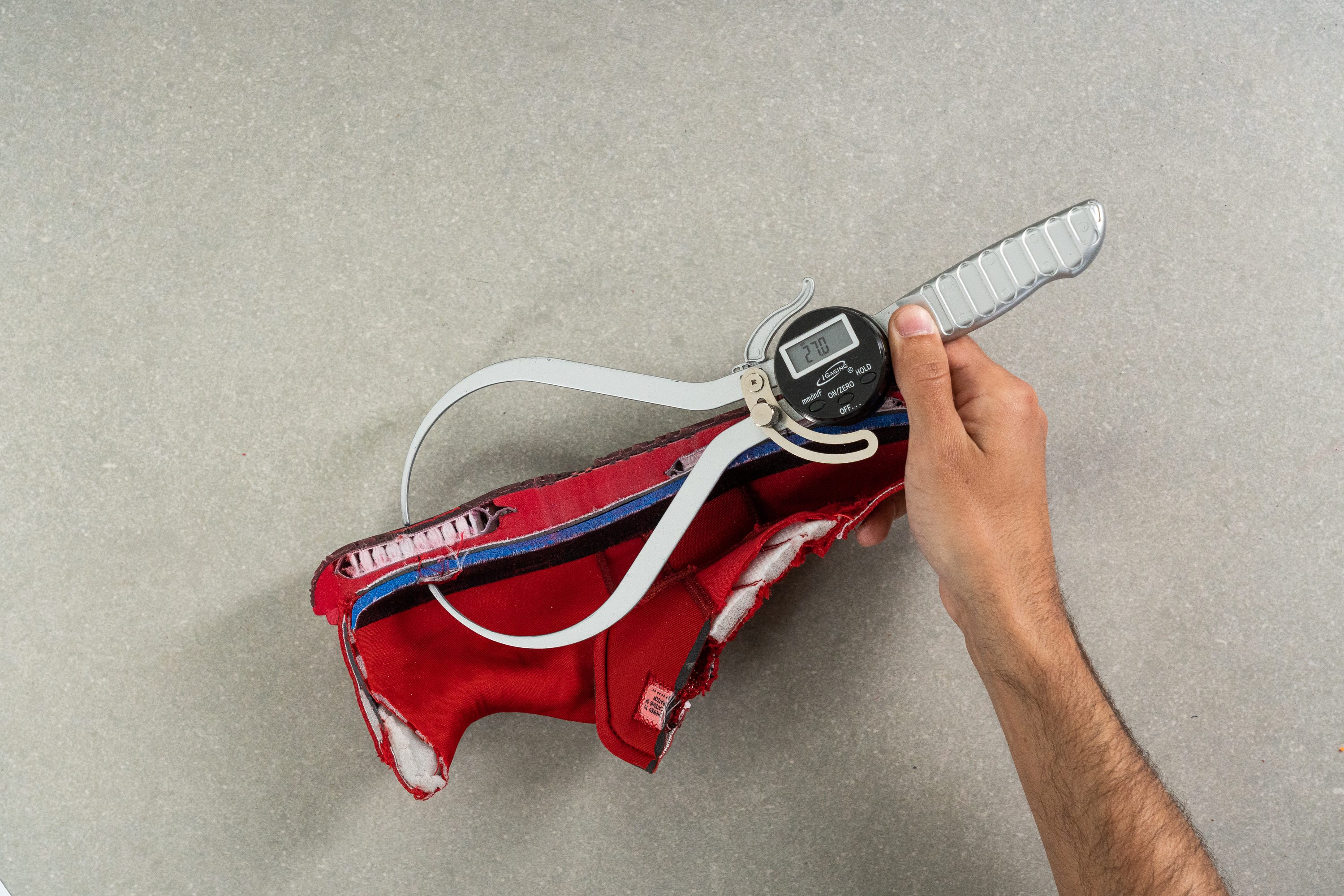
There is 27.0 mm of stack height in the heel, compared to the average 28.2 mm.
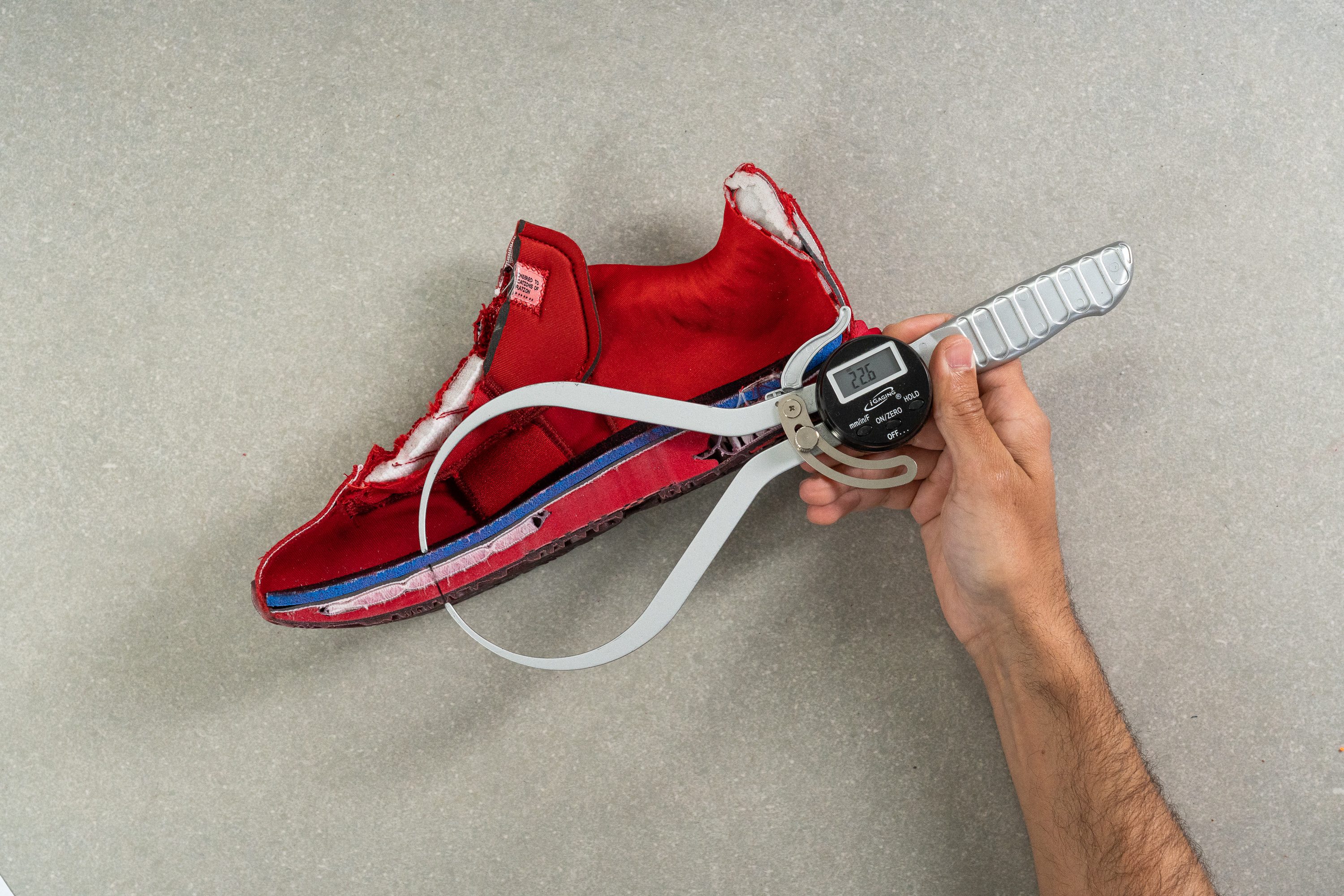
In the forefoot, our callipers show 22.6 mm, compared to the average 21.0 mm.
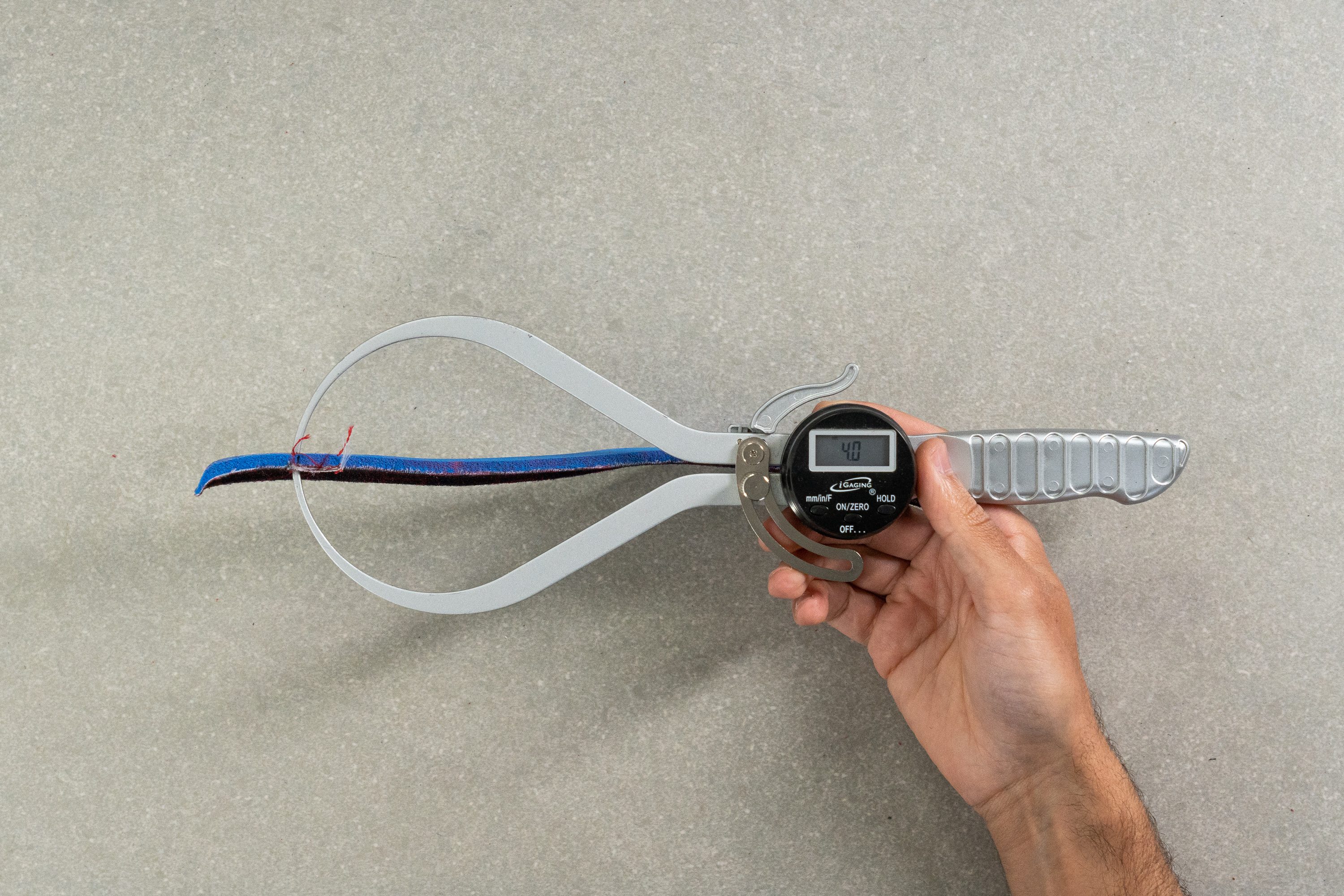
This leaves us with a heel-to-toe drop of 4.4 mm, which is lower than the average 7.2 mm. A lower drop combined with an average cushioning height translates to a more stable and grounded shoe.
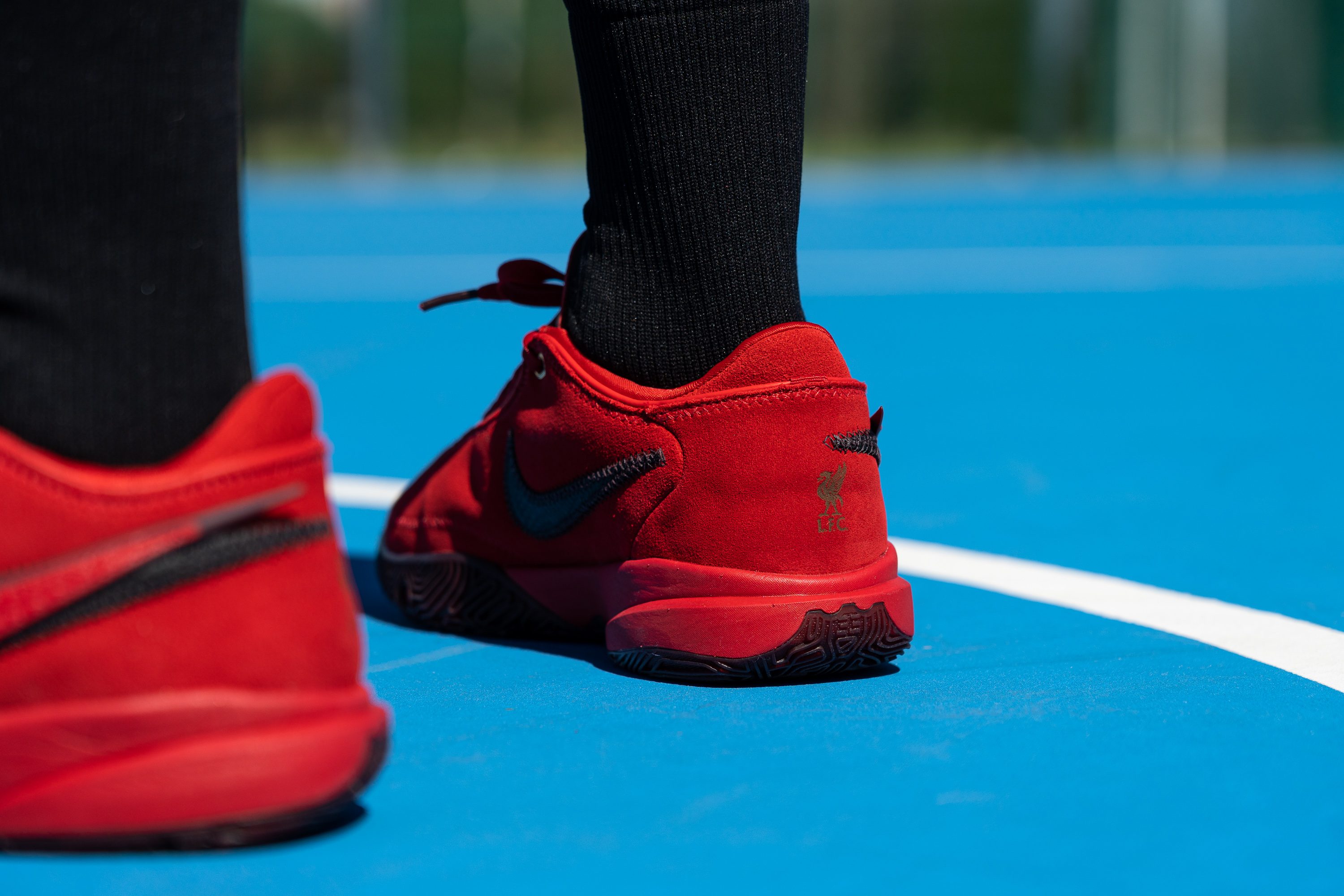
Court feel is not forgotten
There is a Zoom unit in the forefoot, and it brings us more ground feel to that area.
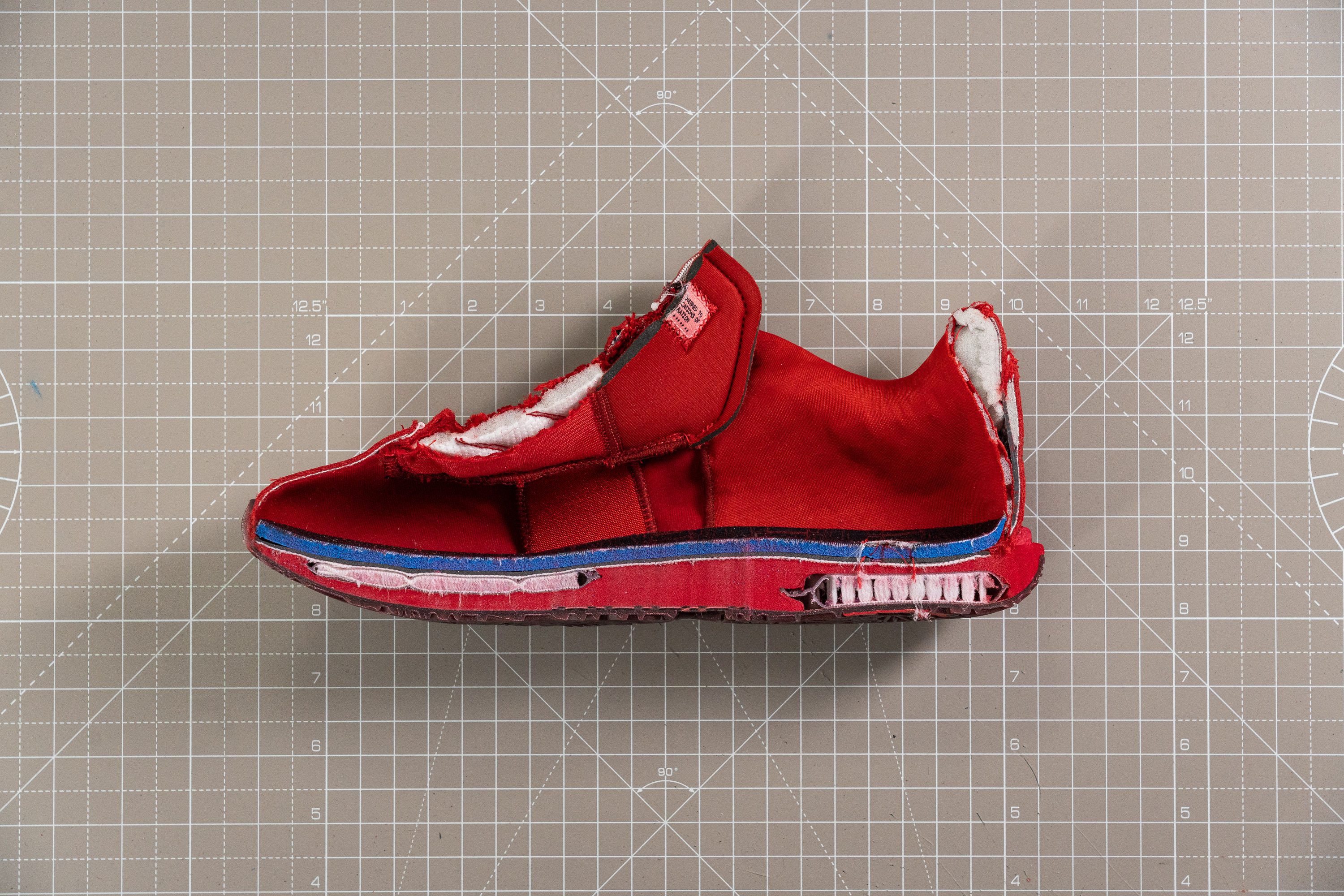
This enhances our control and confidence for shifty footwork and agility.
A sense of stability is also provided by the fairly wide footprint. We measured the widest parts of the shoe's forefoot (111.7 mm) and the heel (90.6 mm).
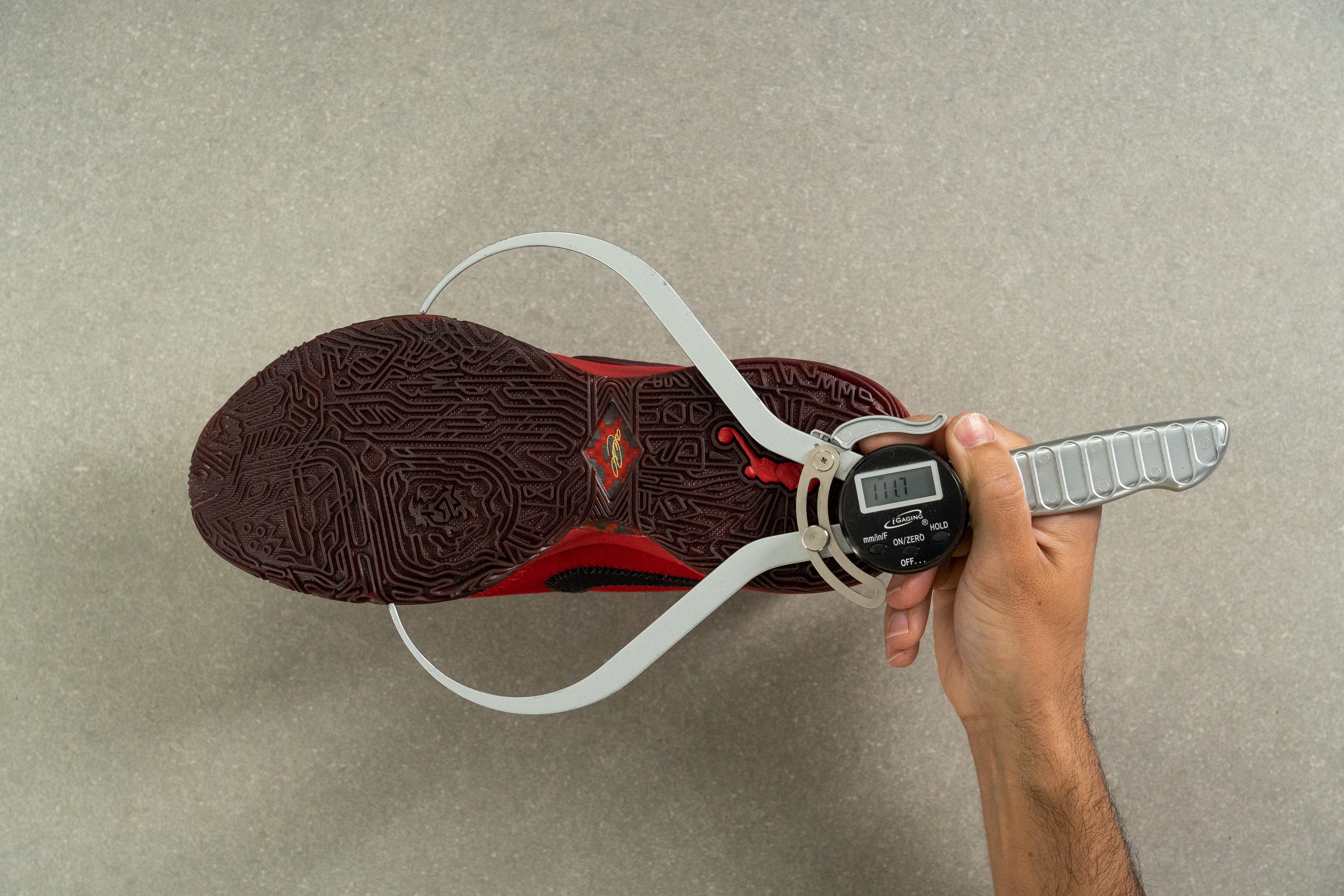
While this is not wider than average, it provides a reliable base for all of your court movements.
The shoe is on the stiffer side
Another key factor that contributes to stability is the overall stiffness of the Nike LeBron 20.
Twisting and bending the shoe in a manual assessment, we rated both its longitudinal and torsional flexibility as 5 out of 5 (maximum stiffness level).
However, when we bent the shoe to a 90-degree angle and measured its resistance with a gauge, it turned out to be of average flexibility for a basketball shoe. It is even 3% bendier than average. Yet, it is still stiffer than some of the other Nike shoes we've tested.
Snug fit: Take it or make adjustments
We consider the fit of the Nike LeBron 20 incredibly tapered, especially around the forefoot. Those with narrow and medium-sized feet can go true to size if they want a snug, one-to-one fit. Otherwise, going up half a size is what we recommend.
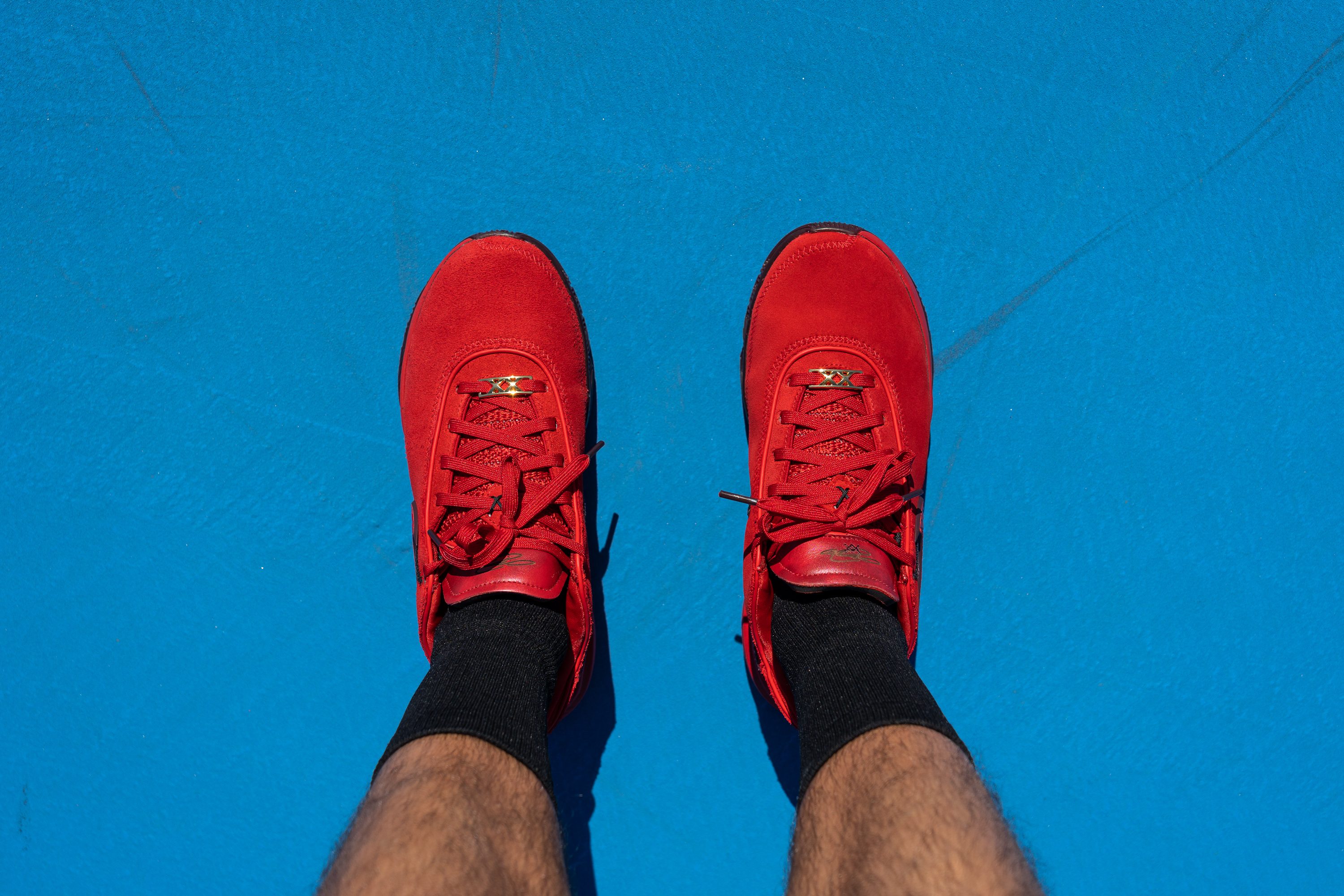
Indeed, the toebox of the Nike LeBron 20 tapers more compared to other basketball shoes we've tested. We measure both the widest part of the forefoot and the area around the toes. On average, our lab-tested basketball shoes get 29% narrower towards the toes, while the LeBron gets 33.2% narrower.
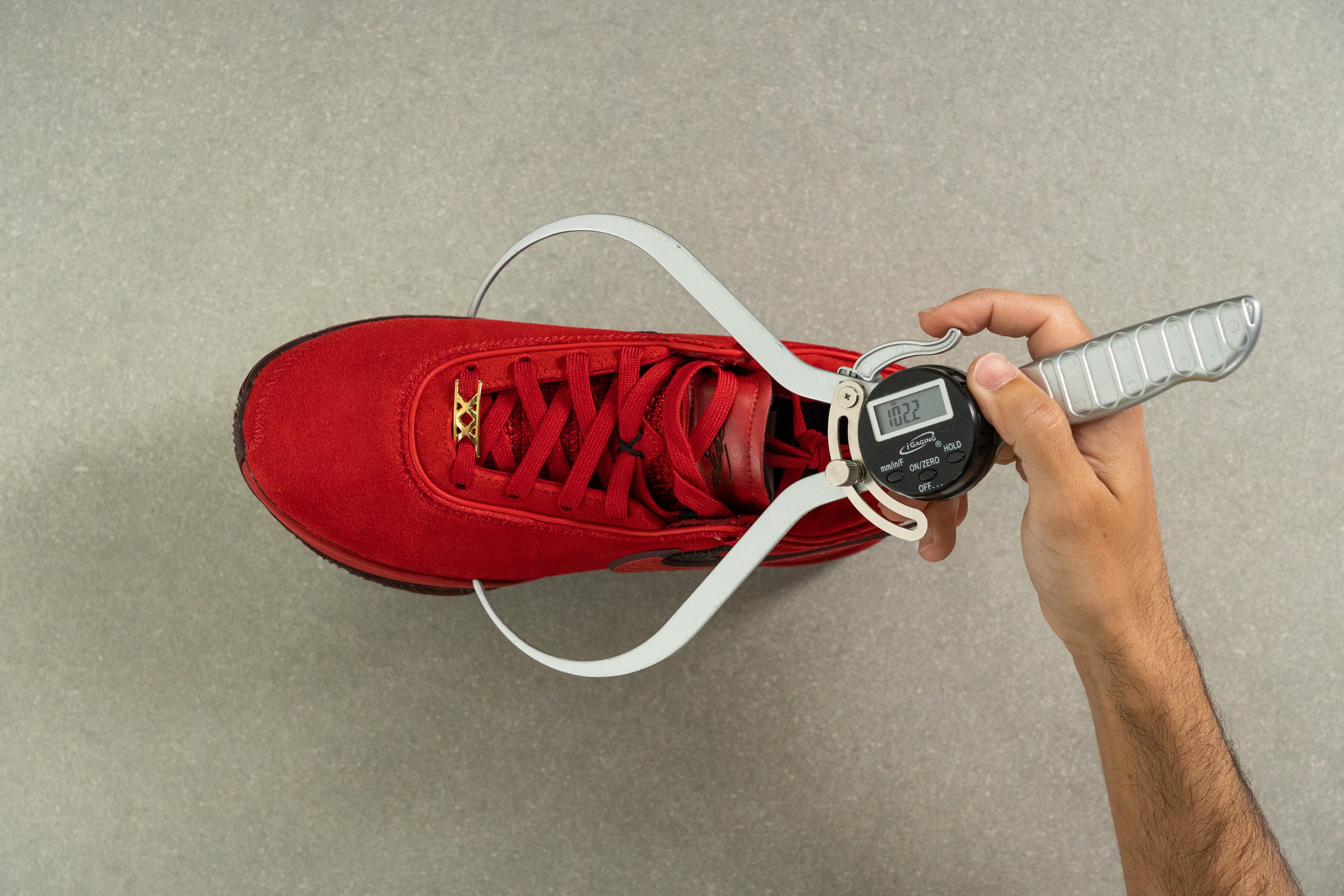
We are certain that players with wider feet are going to feel it. Especially in the suede variant, which doesn't have any stretch to it.
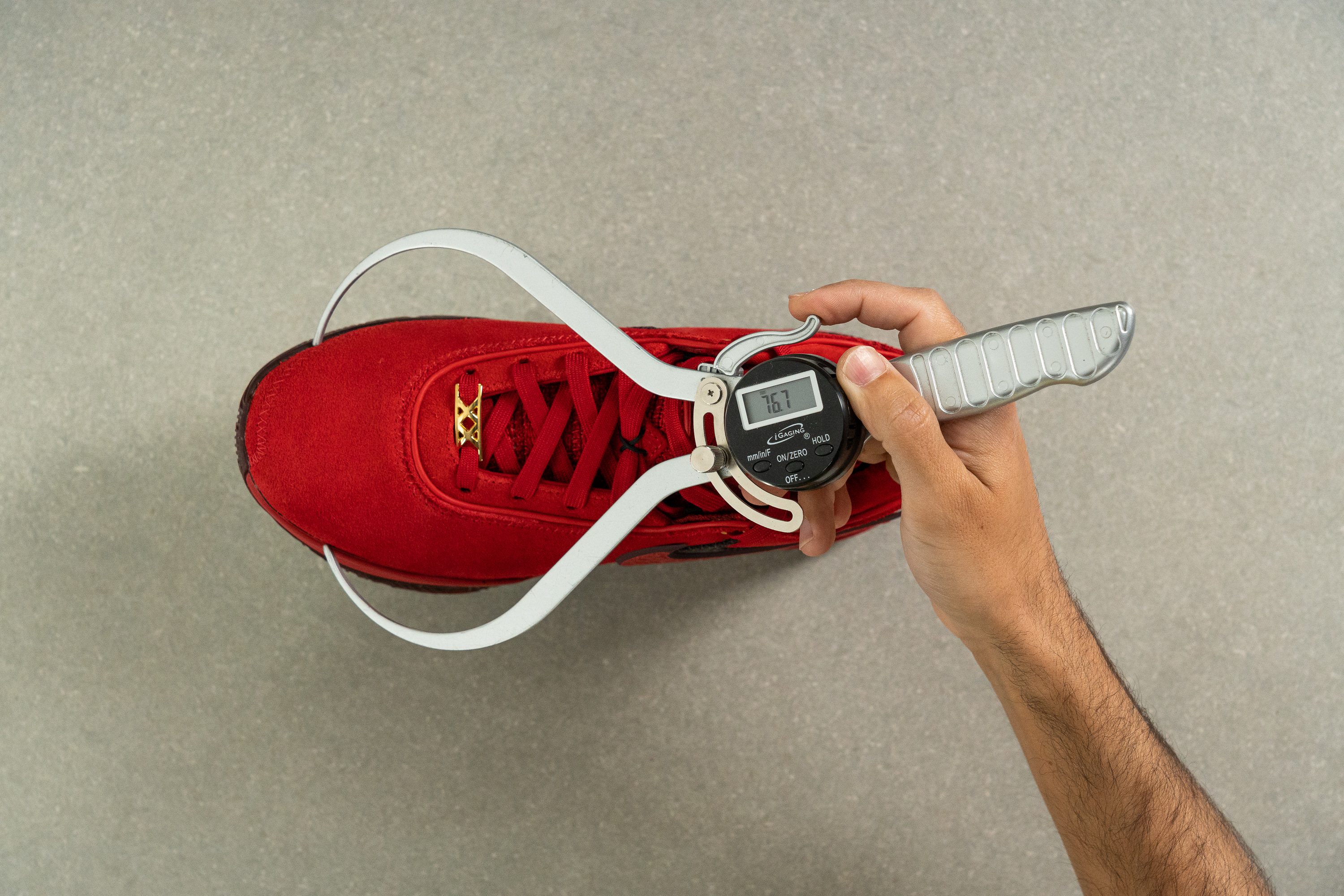
Lockdown: Not a problem with the LeBron 20
Even when we do incredibly violent movements while wearing LeBron 20, this basketball shoe offers superb lockdown and containing.
We discovered that the semi-gusseted tongue is there to prevent the foot from sliding.
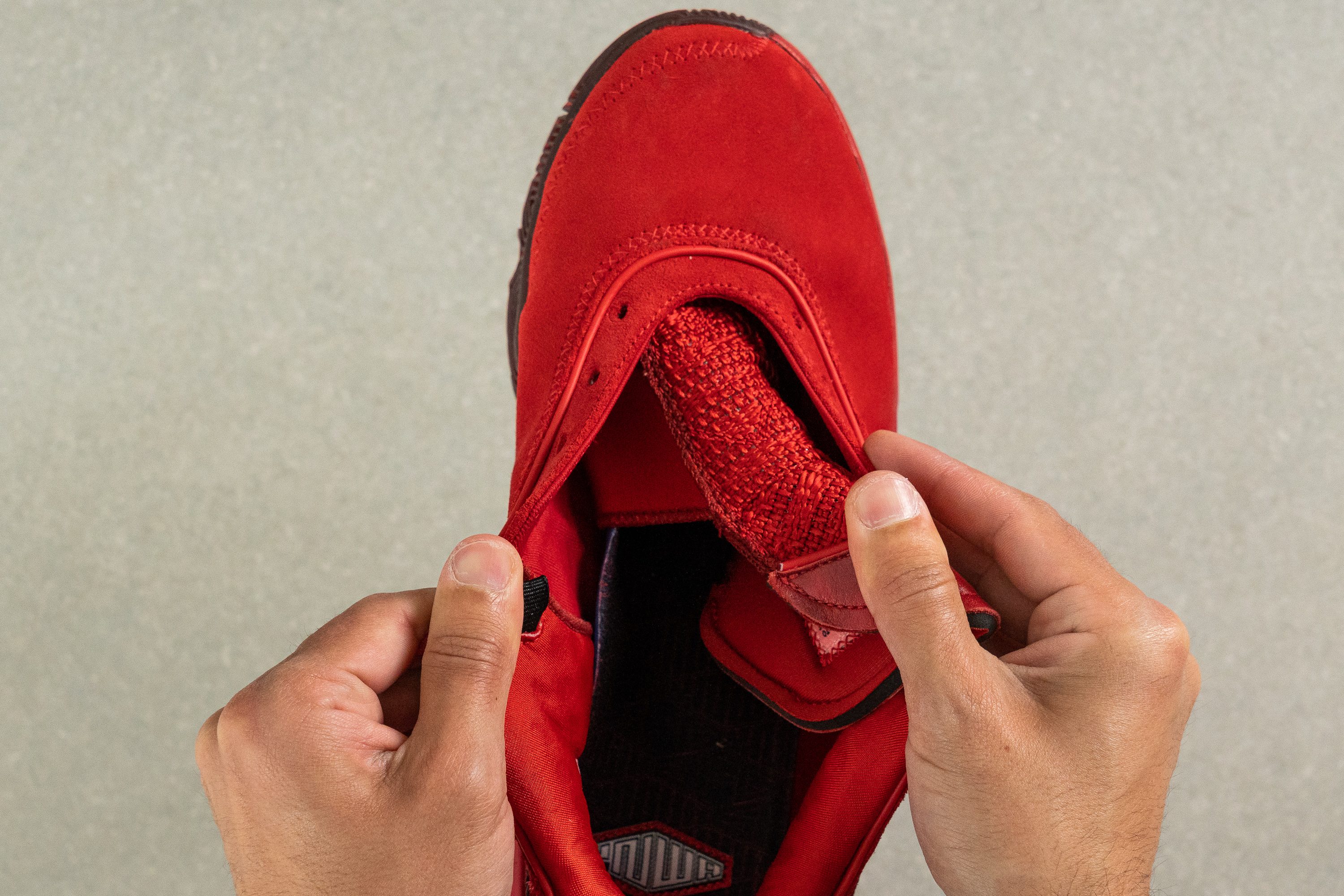
Heel slips are out of the question as well given the shoe's stiff heel counter. In a manual assessment, we rated it as 4 out of 5 (where 5 is the stiffest).
LeBron 20: Pretty on and off the court
The 20th Nike LeBron also looks fantastic. There is no doubt that it can catch the attention of on-lookers.
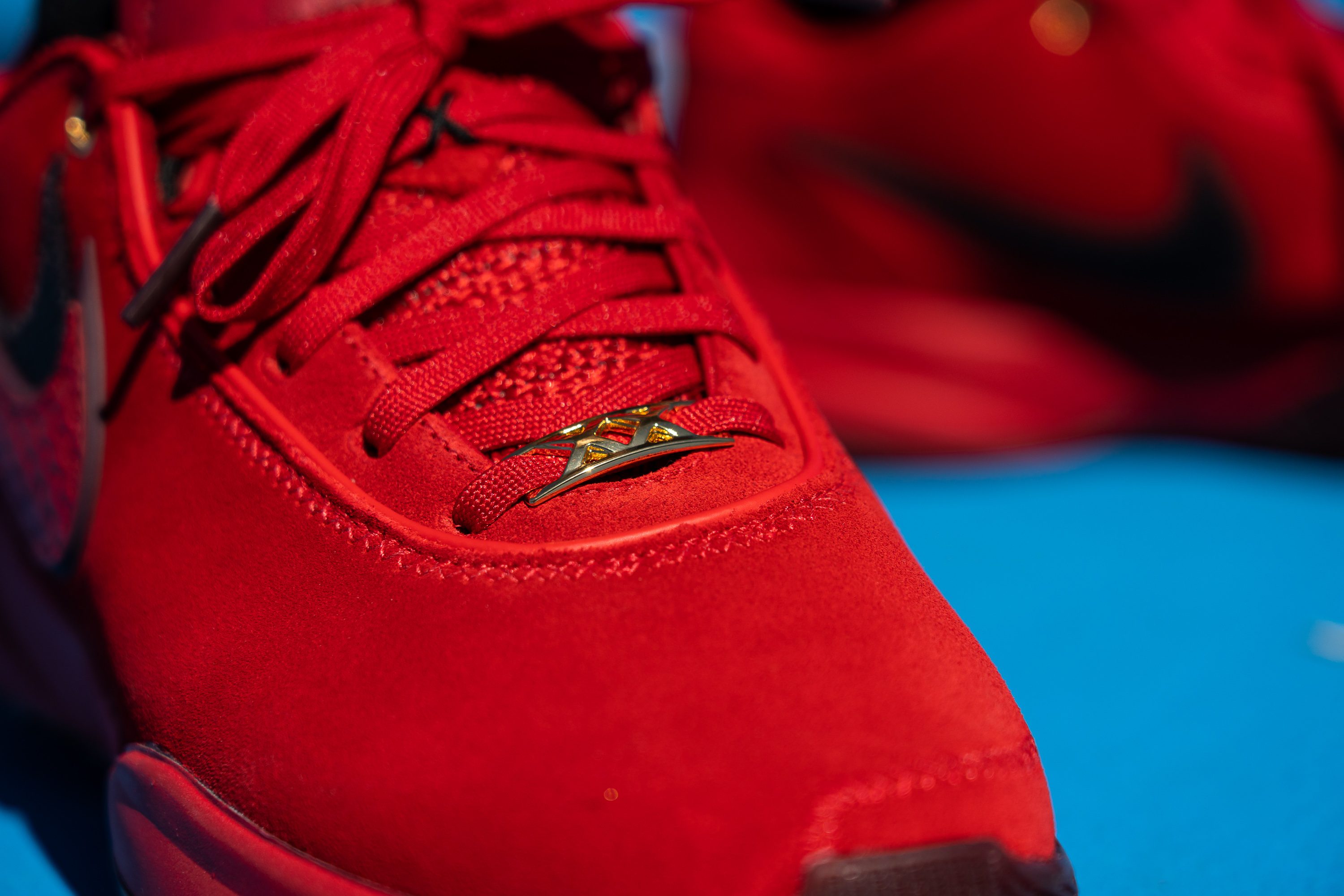
Indeed, we snatched hearts while sporting this shoe in the courts and on the streets.
